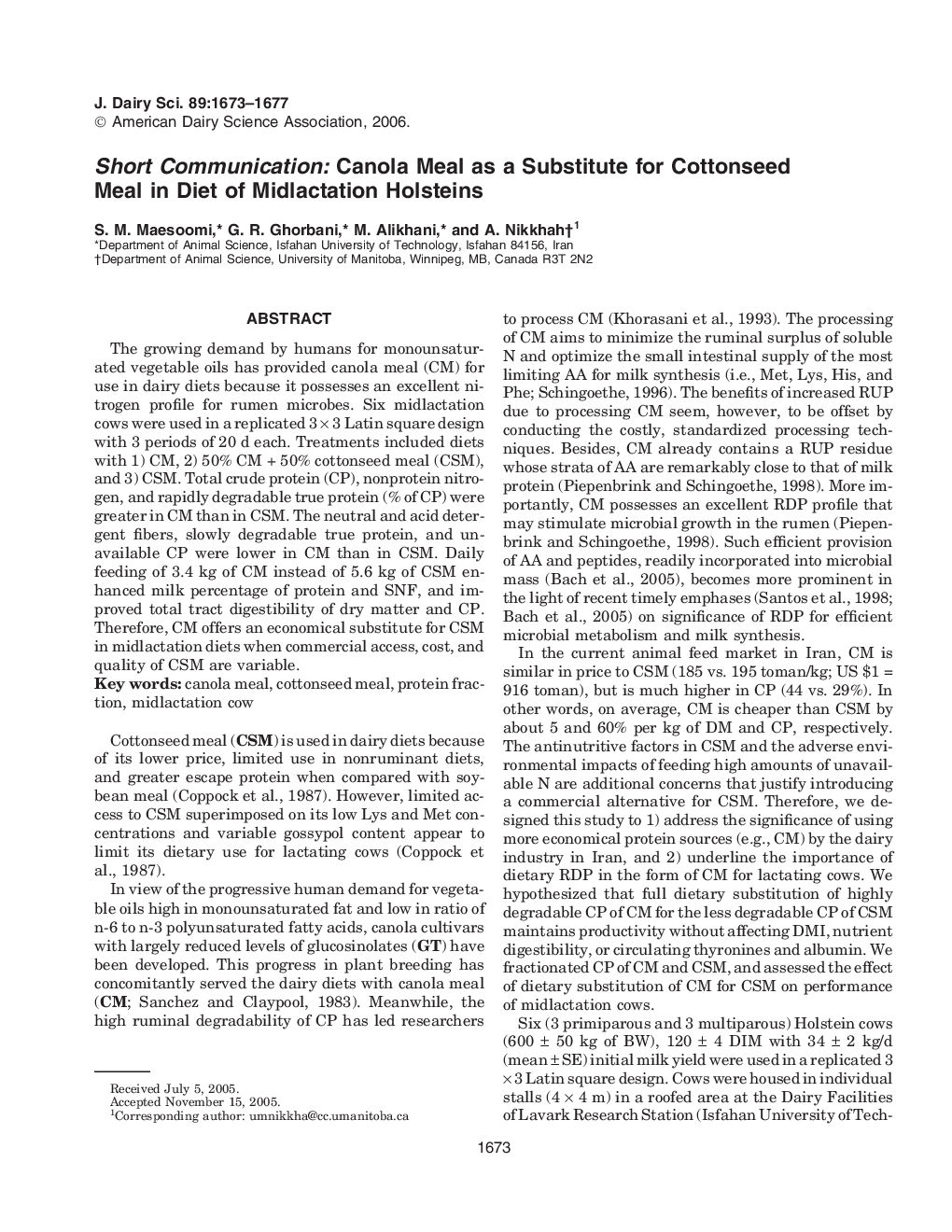| Article ID | Journal | Published Year | Pages | File Type |
|---|---|---|---|---|
| 2441584 | Journal of Dairy Science | 2006 | 5 Pages |
Abstract
The growing demand by humans for monounsaturated vegetable oils has provided canola meal (CM) for use in dairy diets because it possesses an excellent nitrogen profile for rumen microbes. Six midlactation cows were used in a replicated 3Â ÃÂ 3 Latin square design with 3 periods of 20 d each. Treatments included diets with 1) CM, 2) 50% CM + 50% cottonseed meal (CSM), and 3) CSM. Total crude protein (CP), nonprotein nitrogen, and rapidly degradable true protein (% of CP) were greater in CM than in CSM. The neutral and acid detergent fibers, slowly degradable true protein, and unavailable CP were lower in CM than in CSM. Daily feeding of 3.4Â kg of CM instead of 5.6Â kg of CSM enhanced milk percentage of protein and SNF, and improved total tract digestibility of dry matter and CP. Therefore, CM offers an economical substitute for CSM in midlactation diets when commercial access, cost, and quality of CSM are variable.
Related Topics
Life Sciences
Agricultural and Biological Sciences
Animal Science and Zoology
Authors
S.M. Maesoomi, G.R. Ghorbani, M. Alikhani, A. Nikkhah,
